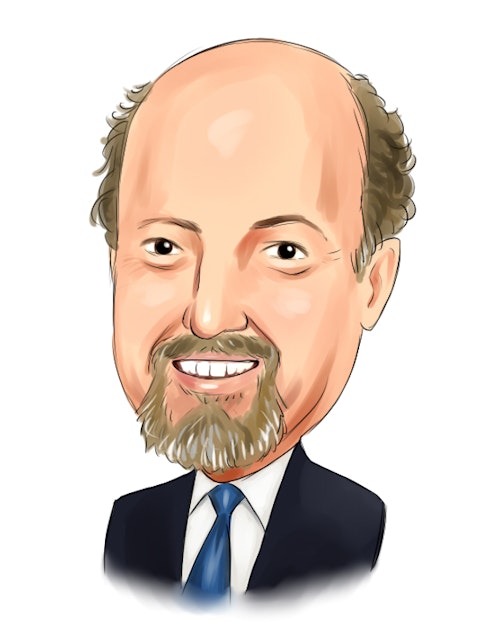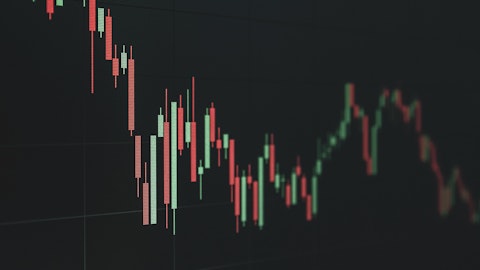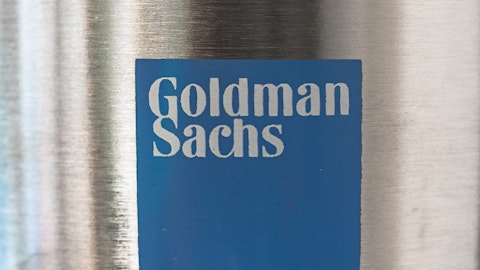Jim Cramer, the host of Mad Money, offered his insights into the market’s recent performance, highlighting why the tech-heavy Nasdaq failed to make a strong rebound. He pointed to a unique combination of factors contributing to the setback: the influence of the U.S. government and the actions of Mark Zuckerberg. Cramer drew a parallel between the tech sector and the pharmaceutical industry, which similarly faces increasing scrutiny and restrictions from federal authorities.
After attending the JPMorgan Healthcare Conference, Cramer expressed his optimism about the future of medicine. Despite the promising developments in the healthcare space, he pointed out that the U.S. government doesn’t appear to be particularly favorable toward executives in the industry, who are investing heavily in research and development. He noted that while these companies are spending billions on R&D, they still find themselves under fire, with the Biden administration targeting major drugs as part of the Inflation Reduction Act.
“We are in some weird moment where the two best industries we have are in the crosshairs of the federal government with Mark Zuckerberg aiding and abetting the prosecution. The drug companies managed to rally today because we heard their side of the story. But tech, the tag team of the government and Meta may have been too much for everyone. At the end of the day though, buyers finally came in to find bargains in the semis and software and the drug stocks, only the drug stocks finished in the green.”
READ ALSO Jim Cramer is Watching These 8 Stocks and Jim Cramer’s Game Plan: 12 Stocks in Focus This Week
“At the same time, I sure didn’t like what I saw when I watched the Joe Rogan Experience this weekend when a very unfettered Mark Zuckerberg… took some shots, I would say cheap shots, I mean just terrible, at Apple that made me want to throw a yellow flag 15 yards on sportsmanlike conduct.”
What bothered Cramer even more, however, was the U.S. government’s increasing intervention in the semiconductor industry, which he felt undermined the efforts of experts like Jensen Huang. Over the weekend, new restrictions were put in place that limited the number of GPUs companies could sell, further complicating the situation for the tech sector.
“The bottom line: Are the charges against these two industries just glancing blows? Nah, this was just one day where the bond market didn’t crush every stock.”

Jim Cramer’s Lightning Round: 7 Stocks Under the Spotlight
Our Methodology
For this article, we compiled a list of 7 stocks that were discussed by Jim Cramer during the recent episode of Mad Money on January 13. We listed the stocks in ascending order of their hedge fund sentiment as of the third quarter, which was taken from Insider Monkey’s database of 900 hedge funds.
Why are we interested in the stocks that hedge funds pile into? The reason is simple: our research has shown that we can outperform the market by imitating the top stock picks of the best hedge funds. Our quarterly newsletter’s strategy selects 14 small-cap and large-cap stocks every quarter and has returned 275% since May 2014, beating its benchmark by 150 percentage points (see more details here).
Jim Cramer’s Lightning Round: 7 Stocks Under the Spotlight
7. Arbutus Biopharma Corporation (NASDAQ:ABUS)
Number of Hedge Fund Holders: 16
Arbutus Biopharma Corporation (NASDAQ:ABUS) is a biopharmaceutical company focused on developing innovative treatments for chronic Hepatitis B virus infections and antiviral medicines, including for COVID-19. Cramer compared investing in the stock to a risky bet in a casino or a football game.
“Okay, this is the ultimate spec. It’s a $3 stock. It loses money. You know, you could go to the casino, you could play in any kind of touchdown for a series of tight ends for the Eagles or you could buy Arbutus. Take your pick.”
Arbutus Biopharma (NASDAQ:ABUS) is looking to address its financial challenges. For 2025, the company projects a significant reduction in net cash burn, expecting it to range between $47 and $50 million, compared to approximately $65 million in 2024, according to unaudited figures.
6. Aspen Aerogels, Inc. (NYSE:ASPN)
Number of Hedge Fund Holders: 18
When a caller asked about Aspen Aerogels, Inc. (NYSE:ASPN), Cramer called it a “big cyclical stock” and advised to be slow in buying the stock.
“I mean it’s a big cyclical stock that you know, may be good may be bad. You need the Fed to cut rates 17 times for that to happen. Okay, I mean, maybe 42 times. I would be very slow in buying that stock.”
Aspen Aerogels (NYSE:ASPN) designs and manufactures aerogel insulation products, primarily serving the energy infrastructure and sustainable materials markets. Back in August 2024, Cramer said:
“We all recognize that the cyclical stocks the ones that benefit from rates can go higher, maybe much higher… The rate cut winners are divided into two camps: the stocks with high dividend yields and the cyclical companies with earnings that should go higher because lower rates will bolster all sorts of industries.”
5. Alaska Air Group, Inc. (NYSE:ALK)
Number of Hedge Fund Holders: 28
Cramer advised to stay with Alaska Air Group, Inc. (NYSE:ALK) and said, “They are so good, this is their moment. I think you have a total winner, I would stick with it.”
Alaska Air (NYSE:ALK) runs airline services, providing scheduled air travel for both passengers and cargo using Boeing jet aircraft. In April 2022, Cramer commented on the company and said:
“There’s always a bull market somewhere and right now it’s flying at 30,000 feet high. My favorites are the two most profitable, that’s [Delta Air Lines] and [Alaska Air Group].”
However, he pointed out that this high level of recognition makes it difficult for the company to exceed expectations, which in turn impacts its ability to generate significant upside surprises. As a result, Cramer observed that the stock actually declined slightly from the price it was trading at at that time. Since April 2022, the stock is up over 22%.
4. Ralph Lauren Corporation (NYSE:RL)
Number of Hedge Fund Holders: 30
Cramer likes Ralph Lauren Corporation (NYSE:RL) and called it a “winner”.
“Well, Ralph Lauren, first of all, great American, won the Medal of Freedom. But I’ll tell you what’s the power behind it, they’ve got tremendous design. It’s time-honored… You’ve got a winner there.”
Ralph Lauren (NYSE:RL) is a prominent designer, marketer, and distributor of a wide range of lifestyle products, including apparel, home goods, and accessories. The company operates with three key strategic pillars: first, to elevate and energize its lifestyle brand; second, to drive core growth while expanding into new areas; and third, to win in the consumer ecosystem.
Despite a challenging environment, it has performed well in key international markets, especially in Europe, and has seen strong domestic demand, particularly through its full-price stores in North America. The company is set to open 15 to 20 new stores in North America.
Ralph Lauren (NYSE:RL) has updated its fiscal 2025 outlook, now expecting constant currency revenues to grow by 3% to 4%, up from the previous forecast of 2% to 3%. This increase is driven by stronger growth in direct-to-consumer (DTC) channels and international markets. Gross margins are also expected to increase by 80 to 120 basis points, driven by favorable shifts in the company’s mix toward international and full-price DTC businesses, along with continued growth in average unit retail (AUR) and lower cotton costs.
3. Crown Castle Inc. (NYSE:CCI)
Number of Hedge Fund Holders: 34
When asked about Crown Castle Inc. (NYSE:CCI), Cramer said, “I have not liked Crown Castle for ages.”
Crown Castle (NYSE:CCI) is a major player in the communications infrastructure sector, owning and managing cell towers and miles of fiber that support small-cell and fiber solutions in U.S. markets. Since it entered the fiber market in 2015, the company has expanded its operations through acquisitions. However, the high costs associated with building fiber infrastructure have negatively impacted the company’s financial performance.
In response to these challenges, the company is reevaluating its approach to the fiber business and considering various options for its fiber assets. This review was initiated in part due to a pact with activist investor Elliott Investment Management, who has been pressing for changes within the company. In December 2024, Bloomberg reported that TPG Inc. was in advanced discussions to acquire Crown Castle’s fiber business for roughly $8 billion, citing sources familiar with the matter.
The potential sale follows the company’s efforts to enhance profitability and improve capital efficiency within its fiber segment. In the third quarter, as part of these efforts, Crown Castle (NYSE:CCI) and its customers mutually decided to cancel around 7,000 greenfield small cell nodes from the company’s contracted backlog. The decision, part of a broader plan to boost returns, is expected to improve the overall return on the remaining contracted backlog of approximately 40,000 nodes and enhance capital efficiency moving forward.
2. The Kraft Heinz Company (NASDAQ:KHC)
Number of Hedge Fund Holders: 38
Cramer made his dislike for The Kraft Heinz Company (NASDAQ:KHC) apparent as he commented:
“Well, what’s happening at Kraft Heinz? Exactly what should happen at Kraft Heinz. That’s the worst collection of brands I’ve ever seen. I think those guys should continue to go lower and they are living up [to] their expectations.”
Kraft Heinz (NASDAQ:KHC) manufactures and markets a wide range of food and beverage products under brands like Kraft, Heinz, Oscar Mayer, and Philadelphia. In 2024, the company struggled to regain momentum, with its stock declining by over 23% throughout the year. Despite setting modest goals for organic sales growth of 0% to 2% at the start of the year, it consistently underperformed, falling short of expectations in the first quarter with a 0.5% decline in organic sales. The situation worsened in the following quarters, with organic sales dropping by 2.4% in the second quarter and 2.2% in the third, indicating a troubling downward trend for the company.
The company’s adjusted earnings through the first nine months of 2024 showed only slight improvement compared to the same period in 2023, and the company has made little progress in reducing its long-term debt. Its financial challenges are compounded by broader shifts in consumer preferences, particularly among younger demographics, who are becoming more focused on healthy eating.
Kraft Heinz’s (NASDAQ:KHC) products, often not seen as healthy options, may face increasing pressure in the future as these trends continue to shape consumer behavior. The company recently pulled Lunchables from U.S. schools due to disappointing demand, despite previously aiming to target the $25-billion educational market with the product.
1. KKR & Co. Inc. (NYSE:KKR)
Number of Hedge Fund Holders: 66
Cramer said that he would be a buyer of KKR & Co. Inc. (NYSE:KKR) and called the management smart.
“I am gonna say that I like the stock very much and I think those guys are so smart. I would be a buyer… At one point it was down really big today. That made no sense to me whatsoever.”
KKR & Co. (NYSE:KKR) is a private equity and real estate investment firm specializing in a wide range of investments, including acquisitions, leveraged buyouts, growth equity, and distressed assets. According to management, the firm remains focused on portfolio optimization and continues to explore various avenues to maximize value for its stakeholders. Recently, it was reported that the company is considering selling its stake in Viridor Ltd., a U.K. waste management company.
The deal has a potential valuation of £7 billion, though discussions are still in early stages and a sale may not occur until 2025. Viridor generated around £400 million in annual EBITDA. Additionally, KKR is engaged in a competitive bidding process to take Fuji Soft, a Japanese IT services firm, private, having outbid Bain Capital with a $4 billion offer. KKR’s bid, which acquired 34% of Fuji Soft, was supported by the company’s board, while Bain moved forward with a hostile bid, asserting shareholder interests and challenging the use of confidential information.
During KKR & Co.’s (NYSE:KKR) Q3 earnings call, management provided an updated outlook, affirming its commitment to achieving significant growth over the next several years. It has guided toward operating earnings of over $300 million by 2026, more than $600 million by 2028, and exceeding $1 billion by 2030. Management expressed confidence in its ability to meet these targets, stating that its conviction in the company’s capacity to achieve these goals has only strengthened since the initial guidance was issued.
While we acknowledge the potential of KKR & Co. Inc. (NYSE:KKR) as an investment, our conviction lies in the belief that AI stocks hold greater promise for delivering higher returns and doing so within a shorter timeframe. If you are looking for an AI stock that is more promising than KKR but that trades at less than 5 times its earnings, check out our report about the cheapest AI stock.
READ NEXT: 8 Best Wide Moat Stocks to Buy Now and 30 Most Important AI Stocks According to BlackRock.
Disclosure. None. Insider Monkey focuses on uncovering the best investment ideas of hedge funds and investors. Please subscribe to our daily free newsletter to get the latest investment ideas from hedge funds’ investor letters by entering your email address below.





